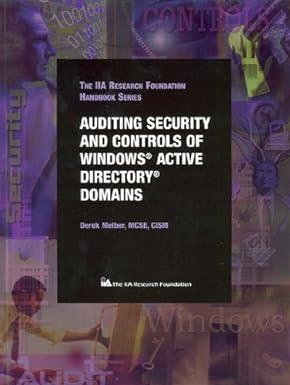Answered step by step
Verified Expert Solution
Question
1 Approved Answer
Robert is a real estate broker who specializes in commercial real estate. Although he usually buys and sells on behalf of others, he also maintains
Robert is a real estate broker who specializes in commercial real estate. Although he usually buys and sells on behalf of others, he also maintains a portfolio of property of his own. He holds this property, mainly unimproved land, either as an investment or for sale to others.
In early Irene and Al contact Robert regarding a tract of land located just outside the city limits Robert bought the property, which is known as the Fenway farm, several years ago for $ At that time, no one knew that it was located on a geological fault line. Irene, a wellknown architect, and Al a building contractor, want Robert to join them in developing the property for residential use. They are aware of the fault line but believe that they can circumvent the problem by using newly developed design and construction technology. Because of the geological flaw, however, they regard the Fenway farm as being worth only $ Their intent is to organize a corporation to build the housing project, and each party will receive stock commensurate to the property or services contributed.
After consulting his tax adviser, Robert agrees to join the venture if certain modifications to the proposed arrangement are made. The transfer of the land would be structured as a sale to the corporation. Instead of receiving stock, Robert would receive a note from the corporation. The note would be interestbearing and be due in five years. The maturity value of the note would be $the amount that even Robert concedes is the fair market value of the Fenway farm.
Your manager has asked you to determine the income tax consequences that will result from Roberts suggested approach. You should compare this result with what would happen if Robert merely transferred the Fenway farm in return for stock in the new corporation. What is the IRC tax code that will best benefit Robert if he chose to transfer the land to the corporation? What would Robert's tax benefit or nonbenefit be if he decided to transfer the land to the corporation? What would Robert's best choice be for tax purposes and how would IRC affect both decisions?
Step by Step Solution
There are 3 Steps involved in it
Step: 1

Get Instant Access to Expert-Tailored Solutions
See step-by-step solutions with expert insights and AI powered tools for academic success
Step: 2

Step: 3

Ace Your Homework with AI
Get the answers you need in no time with our AI-driven, step-by-step assistance
Get Started


